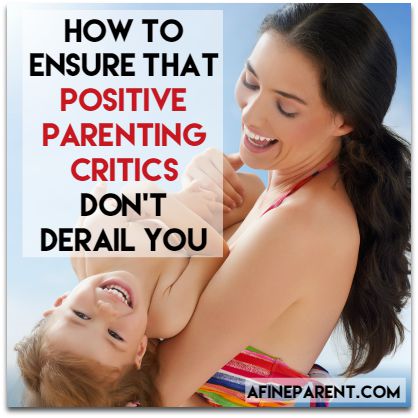 You’re a positive parent or working on becoming one.
You’re a positive parent or working on becoming one.
You’re proud of the choice you’ve made. It feels instinctive. Natural.
And your child is thriving. He trusts you. You’re building a strong connection. You expect your child to grow into a happy, confident and independent adult.
But just when you are getting comfortable in your role as a positive parent, your mother-in-law says you’re too soft. She hints (or maybe even tells you openly) you need to “discipline” your child more.
Perhaps you’ve also heard friends make comments about parenting styles and you wonder if they’re really criticizing you.
— He’ll never learn to self-soothe if you don’t let him cry.
— He’s overly attached to you.
— She’s upset, quick, distract her!
— You need to show him who’s in charge!
Western society expects a parenting approach centered on adult’s wants rather than children’s needs. Punishments, time-outs, threats and rewards have become normal tools in the parenting toolbox.
So, when you’re swimming against the tide of conventional parenting how do you defend your choices?
How do you silence the critics?
How do you stay the course when everyone seems bent on dragging you into the world where parenting is synonymous with discipline based on control and obedience?
I wondered the same.
So, I delved into the science and psychology of positive parenting. Want to know what I found out?